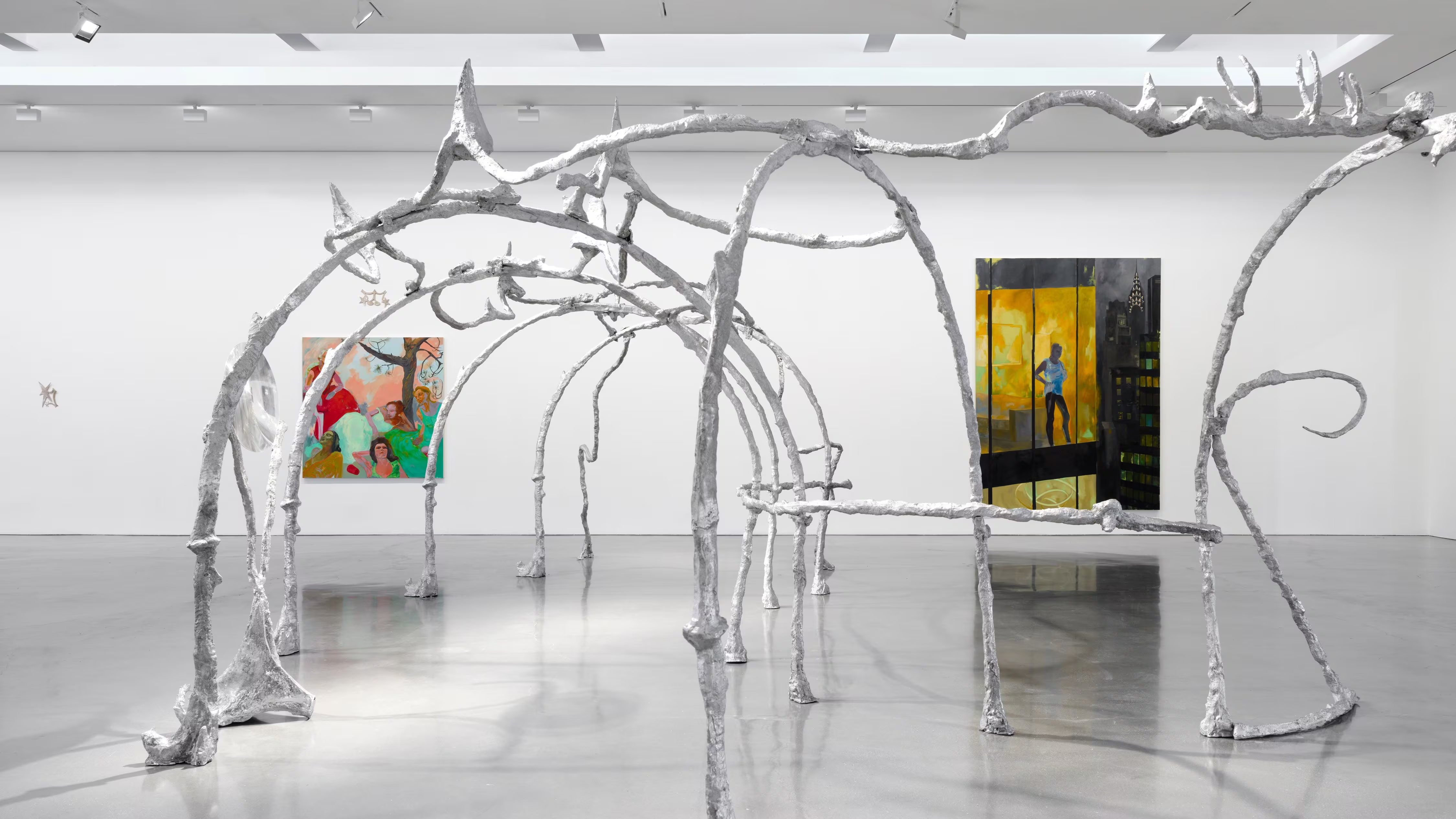
When I tell people that I haven’t left New York City in years, they react as though it’s a medical emergency. Invariably, they offer advice on how I can alleviate the problem, telling me that there is no amount of money not worth spending to leave now, as if the situation is something that can only worsen with increased delay. They offer destination ideas. First, far off ones, like Europe and Japan. But after a moment of weighing the time that organizing such a trip would require, they correct themselves and instead tell me to leave now, tonight, for upstate, Providence, Maine—places that I could leave for immediately, to avoid the impending disaster of staying just the slightest bit longer.
I haven’t left the city since early 2022, and in the years prior, only a handful of times. I’ve actually only left Manhattan twice in the past six months, and I barely even leave the same area here. I occupy the same one-mile radius around my apartment on Delancey Street so consistently that it borders on an obsession. I walk the same streets so commonly, and even the same side of the street, that one New Year’s resolution of mine was to, at the very least, try to walk on the other side. Eventually, I started putting aside days where I would try to satiate the sensation of travel by taking trips to the farthest reaches of public transit.
Online, people with a similar problem offered tips on places you could go while staying well within the city limits: Fort Tilden, Forest Park, Fort Tryon Park. In May, I took the A train to a wildlife refuge that was located off a highway, which was as loud as the middle of the city. It was filled with tourists, and sirens could be heard from miles away; Manhattan was constantly in view across the dunes, waiting. Even though I was giddy on the way there, ultimately the trip only highlighted how stuck I’d felt to begin with.
Recently, my stillness has become so entrenched that I’ve started getting sick whenever I travel even short distances. I’m so used to the same sights, sounds, smells, sensations—the same sidewalks, speed, and billboards—that any deviation, like driving in a car for more than 10 minutes, causes me to get something close to what I imagine vertigo is like.
I don’t even think it’s been that long, and for many New Yorkers, leaving isn’t even a consideration. But living in New York is premised, at least in theory, on leaving it as often as possible. As the only way to tolerate living amongst the reality of its grift, sound, waste, and conspicuously built inequality is to try and maintain some sort of pristine idea of it in your mind, something that can only be done by keeping a perpetual or at least imagined distance.
I think about leaving almost daily. I check flight prices, maps, train schedules. I check in on friends in other cities to see if they’d be able to put me up. Sometimes I go for walks on Google Street View or just imagine other places—the images becoming increasingly intense. But the few times I have left the city limits, I felt immediately that I needed to come back. I missed it and, through the palpable difference in energy, felt as though I were missing something, even if that thing was just more of the same.
There’s no real explanation for why I haven’t left, other than the common refrain of being too busy in a city where time is notorious for slipping away. I didn’t even notice until after it’d been more than a year since I’d left, after which I thought of it more and more. Some days I feel like I’ll explode if I don’t at least make plans to leave, but most of the time I can’t imagine being anywhere else.
Does doing the exact same thing everyday, in the exact same place, lead to a form of banal, Kantian genius? Does it allow you to become so numb to your exterior surroundings that your mind is forced to create its own compelling ideas to compensate? Or is schedule, and blind adherence to it, a form of slow death? I’m not sure. And either way, even when I do want to leave, I just can’t seem to find the time.









.avif)








.avif)


_result_result.avif)



.avif)

_result_result.avif)

_result_result.avif)
.avif)

_result_result.avif)


_result_result.avif)


.avif)




.webp)

.avif)















%20(1).avif)
.avif)




.avif)















.avif)


.avif)





















.jpeg)

.avif)

_11%20x%2014%20inches%20(2).jpg)







.avif)

.jpg)

%20(1).jpg)
.avif)
.jpg)

.jpg)
.webp)


.webp)



.webp)


.webp)


.avif)












.avif)
.avif)





.avif)












.avif)



.avif)




















-min_result.avif)









.avif)







3_result.avif)
_result.avif)






_result.avif)




.avif)




.avif)













_result.avif)




%2520(1)_result.avif)
_result.avif)


.avif)

.avif)







.avif)

.avif)










.avif)



.avif)


_result_result.avif)
















-min_result.avif)






.avif)
.jpg)
















_result.avif)

.avif)


.avif)







.avif)





.avif)

_result.avif)



.avif)









.avif)









.avif)


.avif)














.avif)




.avif)








.avif)

.avif)

.avif)



.avif)


.avif)




.avif)

.avif)

.avif)
.avif)
%20(1).avif)
.jpg)

%20(1).avif)








.avif)
.avif)

.avif)






.avif)


.avif)
.avif)





















.avif)
.avif)
